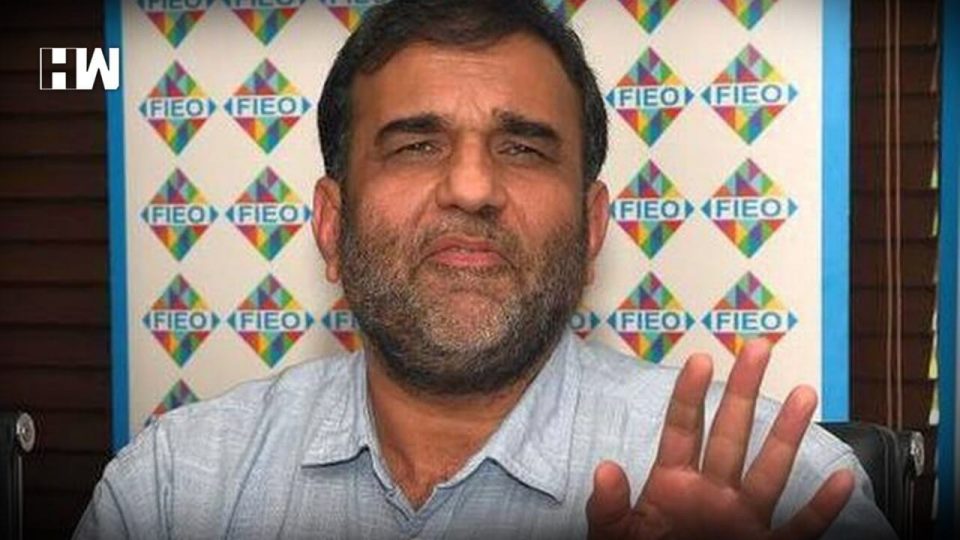New Delhi | India on Tuesday said the US government’s move to withdraw duty concessions on certain products under the Generalized System of Preferences (GSP) programme will not have a significant impact on exports to America as the benefits were only about USD 190 million annually.
Commerce Secretary Anup Wadhawan said despite the fact that India was working on an “extensive and reasonable” trade package, the US has decided to go ahead with its decision to scrap the preferential trade benefit after 60 days.
The package was covering all concerns related to bilateral trade with the US on sectors including medical devices, dairy products and agricultural goods, he said adding that India could not negotiate issues concerning interests of public healthcare.
India exported goods worth USD 5.6 billion under GSP last year, but “our total GSP benefits were to the tune of only USD 190 million, the secretary told reporters here.
He said “the benefits in absolute sense and a percentage of trade involved are very minimal and moderate”. The response came after the US government said it intends to end the preferential trade status granted to India.
GSP benefits are envisaged as non-reciprocal and non-discriminatory to be extended by developed countries to developing economies, Wadhawan said.
Elaborating the demands of the US on medical devices and dairy products, he said India is willing to find a reasonable solution but that has to balance with the country’s non-negotiable public health concerns and requirements.
On dairy sector, “given our religious and cultural concerns, we have a requirement that there should be a certificate that source of the dairy product should have never been fed animal derived feed. So that again is a non-negotiable for us”, he said adding that India could have simplified procedures for importing these two products “without compromising the basic requirements”.
“Both these issues (medical devices and dairy) have aspects that are non-negotiable. Like in medical devices, we will not compromise on the affordability and needs of public health,” Wadhawan said.
US President Donald Trump has said he intends to end the preferential trade status granted to India and Turkey, asserting that New Delhi has failed to assure America of “equitable and reasonable” access to its markets, an announcement that could be seen as a major setback to bilateral trade ties.
Responding to US claims, the secretary said that a suitable balance has to be found in terms of meeting genuine requirements of the US supplier to get fair return and “as (we) know the balance was quite distorted prior to our price controls”.
As prices of certain important medical devices like stent in domestic markets were quite high, India put in place price caps. The US firms raised concerns on that move.
In April 2018, the US initiated a review of GSP benefits on account of representations by diary and medical industries. Later, the US also added various other issues on unilateral basis and that included market access for various agri products, animal husbandry items, relaxation for various procedural requirements in IT goods. So it became a fairly broad-based review covering a large number of trade issues.
The GSP benefits are relatively “very very moderate, so I do not think the economic value of GSP benefits is an important issue”, Wadhawan added.
Although India felt that it has arrived at a fairly meaningful offer which balanced some non-negotiable public health concerns, it does not work for the US and “they decided to withdraw the benefits back”, the commerce secretary noted.
On further course of action, the secretary said issues remained open for discussion in the future as nothing goes off the table.
When asked about India’s decision to impose retaliatory tariffs on 29 US products the deadline for which is extended till April, he said “that was gesture on our part given the strong and cordial ties with the US. But that is a separate issue from the GSP”.
On other concerns being raised by the US related to duty cut on IT products, Wadhwan said India’s duties are very moderate on those items and they are not “import stopping”.
“We are importing a huge volume of IT product,” he said adding that imports are USD 20 billion of which USD 450 million shipments come from the US.
Given the ongoing situation at trade front, “I do not think any knee-jerk reactions would be warranted” from India side, the secretary said.
On concerns being raised by the US with regard to “high tariffs” in India, he said that “we do not agree with that at all. Our tariffs are very consistent with the bound rates that we are entitled too in the World Trade Organisation”.
Commenting on the GSP developments, the Federation of Indian Export Organisations (FIEO) said that withdrawal of benefits would not have a major impact of India’s exports to the US. “The GSP benefits ranged between one to 6 percent”.
The US Trade Representative’s Office has said that removing India from the GSP programme would not take effect for at least 60 days after notifications to Congress and the Indian government, and it will be enacted by a presidential proclamation.
As many as 3,700 products get GSP benefits but India export only 1,900 items such as chemicals and engineering under that concession which was introduced in 1976 by America.
As an independent media platform, we do not take advertisements from governments and corporate houses. It is you, our readers, who have supported us on our journey to do honest and unbiased journalism. Please contribute, so that we can continue to do the same in future.

